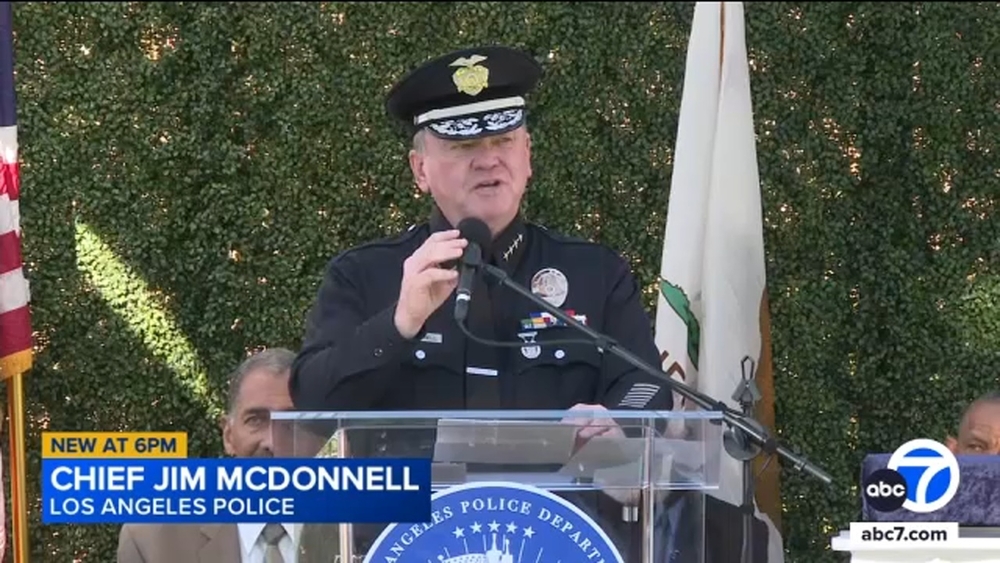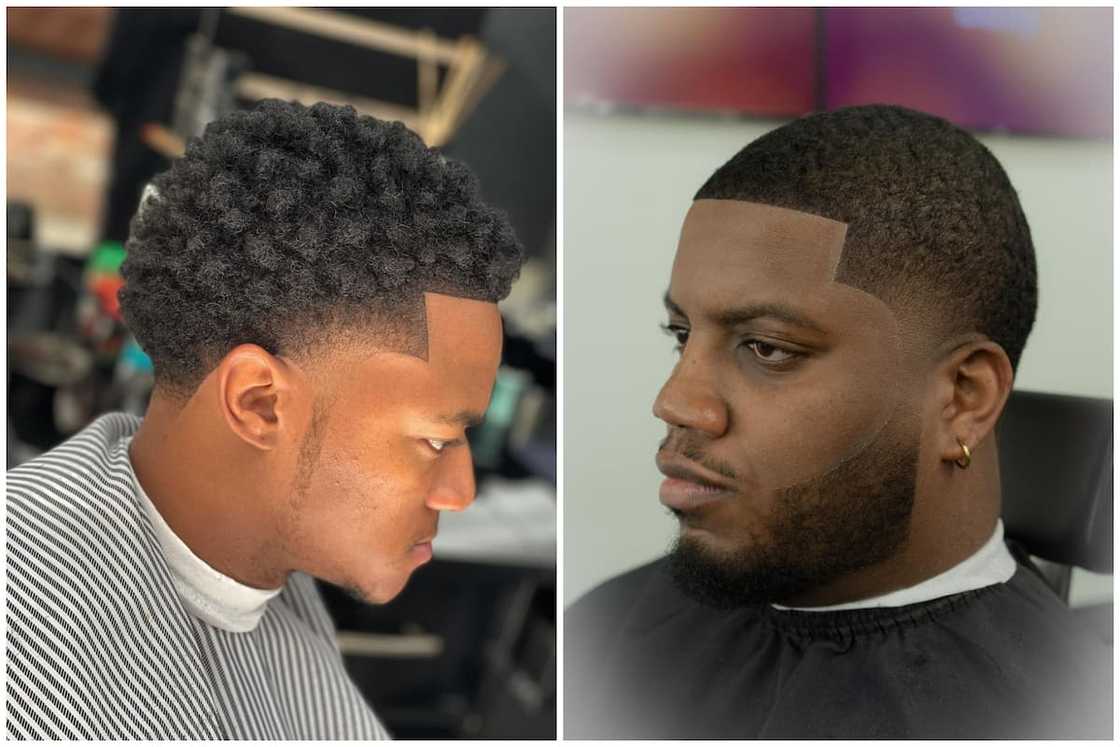(ThyBlackMan.com) Early on during Jim McDonnell’s stint as L.A. County Sheriff we had a private meeting. The issue was sheriff department reform, or rather lack thereof. McDonnell headed a department then that was top heavy with scandals. They included racist gang cliques, a jail under federal mandate to clean up its many documented prisoner abuses, lack of officer accountability, and the never-ending officer involved shootings of unarmed civilians.

There was little evidence of accountability, let alone tough discipline of the officers. McDonnell at the meeting was adamant that he was pushing hard for reform in the areas that begged for reform. But he said that the wall of resistance both within and without the sheriff’s department to meaningful reforms was cement hard. McDonnell was ousted after one term.
Now McDonnell is back in the law enforcement saddle again. He is the freshly minted LAPD Chief. I again have asked for a meeting with him and that includes other L.A. civil rights leaders. The issue is the same as it was when he headed the Sheriff’s Department. That is total reform. McDonnell’s first pronouncements as chief are that he wants more citizens to engage with the LAPD. That holds some promise about openness, transparency, and building community trust.
But that is only a start. Total reform from top to bottom remains crucial in a department that for much of its past and unfortunately at times present history has been a much-deserved poster agency for the most abusive, brutal, “us versus them,” racially bigoted big city police department in the nation.
In the decades since the beating of Black motorist Rodney King in 1991 and the L.A. riots in 1992 there has been much handwringing and soul-searching over how to reform the LAPD, complete with investigations, commissions, voluminous reports, city charter changes, a federal consent decree and the appointment of two reform-minded chiefs.
The aim of all of this was to transform the LAPD into a clean, efficient, community-oriented police department. It was more than a case of image makeover. It was a desperate need for a profound course correction in the way the LAPD did business.
The changes were soon visible. Successive LAPD chiefs disciplined, suspended, and fired officers for misconduct. The use of force by officers dropped. Citizen complaints leveled off.
LAPD officials became constant presences at community events, meetings, and forums, always pushing partnership and dialogue with community leaders. There were aggressive policy changes by the Los Angeles Police Commission, the civilian oversight agency, and the department’s inspector general. None of these things would have had the remotest chance of happening a decade earlier.
Though LAPD top brass continued to loudly protest that racial profiling didn’t exist despite legions of racially based complaints against the department, there was still the sense that the department had turned the corner. Polls showed that more Blacks than ever expressed guarded support for the LAPD.
Yet, while the LAPD clearly continued the reform process, there were still some of the old troubling signs that much more still needed to be done, especially when it came to the most volatile issues — and that’s the use of deadly force, the wildly disproportionate traffic and pedestrian stops of Blacks and Latinos, the patrol saturation of mostly Black and Latino neighborhoods, and questions about how tough and effective disciplinary measures are against officers guilty of misconduct. That includes suspension, firing and, where warranted, a recommendation for prosecution.
Officers who overuse deadly force or commit acts of misconduct must be punished. Without that, it reinforces the notion that officers can administer street corner justice. That is the practice that got the department into so much hot water in years past.
LAPD officials, the L.A. Police Commission, and even the L.A. Police Protective League have repeatedly denounced and promised to crack down on the blue code of silence. There are rules and regulations in place that mandate that officers who witness any abusive, and yes, racist acts, by other officers challenge them and report them.
The problem is that few police departments pound this point home to rank and file officers or for that matter to their superiors. Put bluntly, it means continuing to tell recruits at the academy, officers in orientation and training sessions, and in their performance evaluations that the department has zero tolerance toward police misconduct. That if an officer witnesses it, they are duty-bound to report it.
If they don’t, they are just as guilty of law breaking as the cop that breaks the law. This is a huge problem area that still needs much work within the LAPD.
It’s the single biggest thing that turns minorities and increasingly much of the public against cops, and reinforces the notion that all cops routinely lie, cheat and cover up abuses.
McDonnell has a tailor-made opportunity to do exactly what he professed he aimed at in his meeting with me during his tenure as L.A. County Sheriff. That is to make reform the watchword for the LAPD. The ball is now firmly in his court to do just that.
Written By Earl Ofari Hutchinson
One can find more info about Mr. Hutchinson over at the following site; TheHutchinson Report.
Also feel free to connect with him through twitter; http://twitter.com/earlhutchins

















You will never reformed any organizations that hires people that were born to racist parents and they themselves became racist. We all know, that racism, bias, discrimination is a taught behavior and white parents and Hispanics parents teach their children to be racist and to fear the black men of America. More, so, these white folks and Hispanic men teach their kids to envy the black men over the well endowed size of the black men private part. Indeed, they all hate us but they all want to have what black men have in between their legs and what black women have behind their back.
We have seen how police officers nationwid continue to abuse their power against black people and how the Demcratic goverment has passed more laws to protect Asians and Hispanics; while, at the same time allowing illegal immigrants to enter the country and take away the benefits and low skill level jobs away from the black community. We are becoming obsolete to America and for that reason there will never be any reformed of any police department in America when it comes to the treatment of Black people; Therefore, the only solution for Black men and Black women is to segregate, separate and become like Hamas and Hezbollah when dealing with racist police officers and or white people.
We as black people must be willing to fight these demons to the end or die trying. We must all as so free black men, women LGBT exercsice our second ammendment rights and legally purchase as many guns, rifles, shot guns, ammunitions, ballistic helmets, body armored, tactical combat gear and be ready to fight back and retaliates against racist white people and racist hispanics the moment they hurt one of our innocent children, brothers, sisters, cousings, parents, grandparents. We as black people we must be ready to fight and give these demonic bastards a good hammering; even though, we may not win a civil war against racist America at least we will set the movement acrooss the African continent, the Caribbean and our Afro latinos brother an sisters in Central and South America to start the movement to remove these white demons from our black lands.
Lets not forget the Assassination of Tamir Rice, a young black boy playing in the park with his little sister with a toy gun just like every toy gun that white children and hispanic children are given by their racist parents; Yet, the only child that get killed for playing with the same type of toys is a black boy at the hands of a racist white police officer, who till this day continue to abuse, falsify, and plant drugs on black people.
When will black men return to the ways of the black revolution and the black panther movments. We have to be ready for what is coming and more so for this upcoming Presidential Innauguartioon in 2025 where the White Democrats are going to create a false flag an d blame it on the black community; thus, causing the whtie Republicans to go on a killing spree of innocent black people. We must be ready to fight and retaliatted against any white racist men or racist hispanic by following the steps of Hamas and Hezbollah.